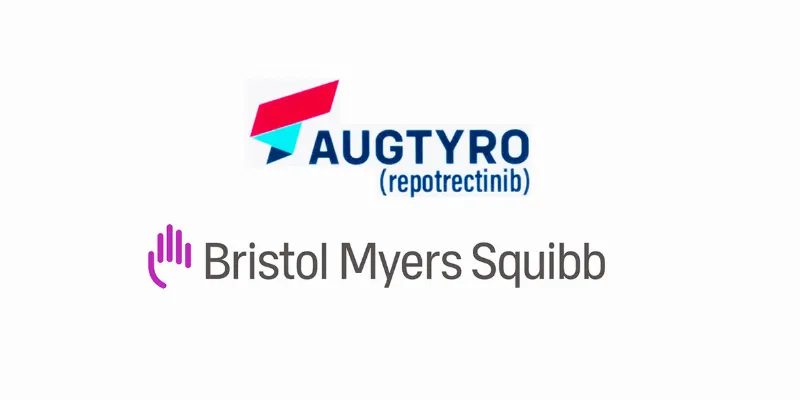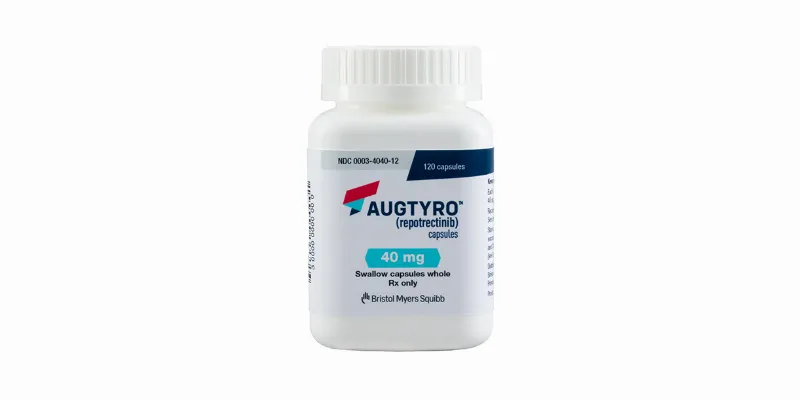Bristol Myers Squibb's Augtyro Receives FDA Approval for Targeted Lung Cancer Treatment

17 November 2023
The FDA has approved Bristol Myers Squibb's Augtyro (repotrectinib), a next-generation tyrosine kinase inhibitor (TKI), for treating a specific form of lung cancer. This approval marks a milestone in targeted cancer treatment, particularly for patients with ROS1-positive non-small cell lung cancer.
In a significant advancement in lung cancer therapy, the U.S. Food and Drug Administration (FDA) approved Augtyro (repotrectinib) by Bristol Myers Squibb for locally advanced or metastatic ROS1-positive non-small cell lung cancer (NSCLC). Derived from the pivotal TRIDENT-1 trial, Augtyro showed high response rates and durable responses, especially in TKI-naïve patients. This approval, offering new hope for patients with this specific genetic alteration.
Evaluate the results of the study and the FDA decision, Jessica J. Lin, MD, TRIDENT-1 primary investigator and Assistant Professor of Medicine at Harvard Medical School, said,
“New treatment options continue to be needed for patients with ROS1 fusion-positive NSCLC that support important clinical goals, including achieving durable therapeutic responses. Based on the data we have seen in the TRIDENT-1 trial, repotrectinib has the potential to become a new standard of care option for patients with locally advanced or metastatic ROS1 fusion-positive lung cancer.”
The TRIDENT-1 Trial: A Game-Changer:
The FDA’s approval is rooted in the results of the TRIDENT-1 trial, a pivotal study that showcased Augtyro's efficacy. In this trial, 79% of TKI-naïve patients saw their tumors shrink or disappear, with a median duration of response of 34.1 months. Even among those previously treated with a ROS1-targeting drug, the response rate was a notable 38%, with a median duration of 15 months. These results not only demonstrate Augtyro's effectiveness but also its potential as a new standard of care for this lung cancer subtype.
“While progress has been made in the treatment of NSCLC over the past decade, there is still a need to address this particularly difficult-to-treat form of the disease with innovative science and a targeted approach,” said Samit Hirawat, MD, Executive Vice President, Global Drug Development at BMS, “As the only approved next-generation TKI for ROS1-positive NSCLC patients, Augtyro builds on our legacy of delivering transformational therapies for patients with thoracic cancers.”
What makes Augtyro stand out is its potential to double the size of the ROS1 market, as estimated by Bristol Myers Squibb. This optimism stems from Augtyro's ability to outperform existing treatments like Pfizer's Xalkori and Roche's Rozlytrek, particularly in maintaining disease control. Furthermore, updated survival data indicates that patients treated with Augtyro can expect a median of 36 months without disease progression or death.

A New Hope for Patients:
Patients with ROS1-positive NSCLC, particularly those with brain metastases, have long faced limited treatment options. Augtyro, with its ability to minimize treatment resistance and offer durable responses, brings new hope to this patient community. Patient advocacy groups like The ROS1ders have expressed optimism about this approval, seeing it as a beacon of hope for more quality time with loved ones.
The approval of Augtyro is more than just a new drug on the market; it represents a paradigm shift in the treatment of ROS1-positive NSCLC. With its impressive trial results and the potential to change the treatment landscape, Augtyro is a testament to the power of targeted therapy in combating cancer.
About TRIDENT-1 Phase 1/2 clinical trial
TRIDENT-1 is an international, multicenter Phase 1/2 clinical trial investigating repotrectinib's effectiveness in treating advanced solid tumors, including non-small cell lung cancer (NSCLC), particularly in patients with ROS1 fusions. The trial, which allows for asymptomatic central nervous system (CNS) metastases but excludes those with symptomatic brain metastases, has progressed through Phase 1's dose escalation to establish the recommended Phase 2 dose. Phase 2 focuses on overall response rate (ORR) and key secondary endpoints like duration of response (DOR), progression-free survival (PFS), and intracranial response. Remarkably, 79% of TKI-naïve patients and 38% of TKI-pretreated patients responded to treatment, with significant responses in intracranial lesions. The FDA-approved dosage of Augtyro is 160 mg orally, initially once daily for 14 days, then increased to twice daily.











Comments
No Comments Yet!